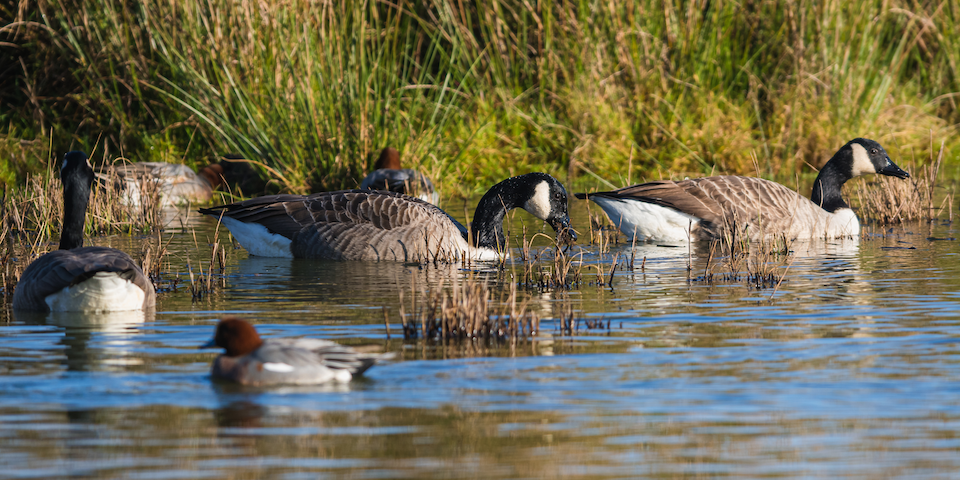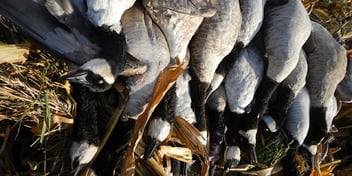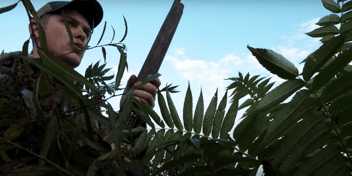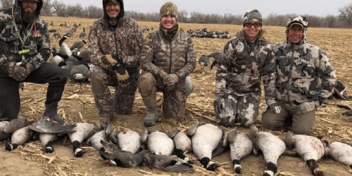
Join Jon as he explains how weather conditions, like unexpected rain, can influence geese behavior and impact your hunting approach. Gain insights into the differences between loaf spots and roosts, and how to adapt when you can't get permission to hunt in certain fields. Whether you're an experienced hunter or just starting out, Jon's guide offers practical advice and enthusiastic encouragement for a thrilling and safe goose hunting season.
Transcription:
What's going on everybody? Hope you're having a great fall. It's October here in New York. We just had our opening day of goose season for the regular season, and we're actually hunting a loaf pond.
I wanted to take a minute and give you some tips on how to find them, and also how to hunt them. Today, unfortunately, wasn't the best conditions for a loaf hunt. Usually what we're looking for is a morning or a day that, you know, birds are going to go out and feed and then come back and loaf mid-day.
What I mean by that—that may sound pretty simple—is we had some unexpected rain come through today and what that does a lot is keep those birds in the fields way longer than if it was bluebird-sky-dry-out. Those birds will feed and then they have to come back to water to drink.
But when you get that rain, especially if they're in green fields, they're usually able to get enough water from the field itself and not have to come back to a pond to drink.
That's your first tip, try to set these hunts up when the weather makes sense.
By loaf hunting, what I mean is their midday spot where they hang out before they go back out and feed in the evening and that's exactly where we are today. A lot of times you're spending time first thing in the morning and then trying to get permission on the fields to hunt.
To find these usually what we're doing is obviously finding those birds in fields or finding congregations of birds and seeing where they're going after they finish feeding. Their loaf will probably be different than their roost, especially where we are, where their roots are in really big lakes and water and big irrigation ponds and stuff like that. Often they're going to go back to those, but may use these spots close to where they're feeding in the evening during the mid-day.
Another thing is, it's great if you can't get out first thing in the morning when they're feeding. If you find birds in a field already, and you can't get permission on the field—that's another great thing, don't just hang your hat up and go home for the day—you can try to find those birds going back to the water sources around there.
This pond sets up nicely. A lot of times we're not hunting them in temporary type ponds like this. This is big enough that it's open. The trees aren't super tall. The one side allows those birds to get down in here. This is absolutely covered in geese for the last couple of days, so it's just another option that you can throw in your arsenal to try to try to get on something.
If you haven't, give it a shot. It's a blast. Will is hunting honkers. We had an awesome time today and you shoot geese over water. You'll understand what I mean by they work better. It's a lot of fun. So good luck hunting, stay safe, and hope you guys have a great season.
About the Author




